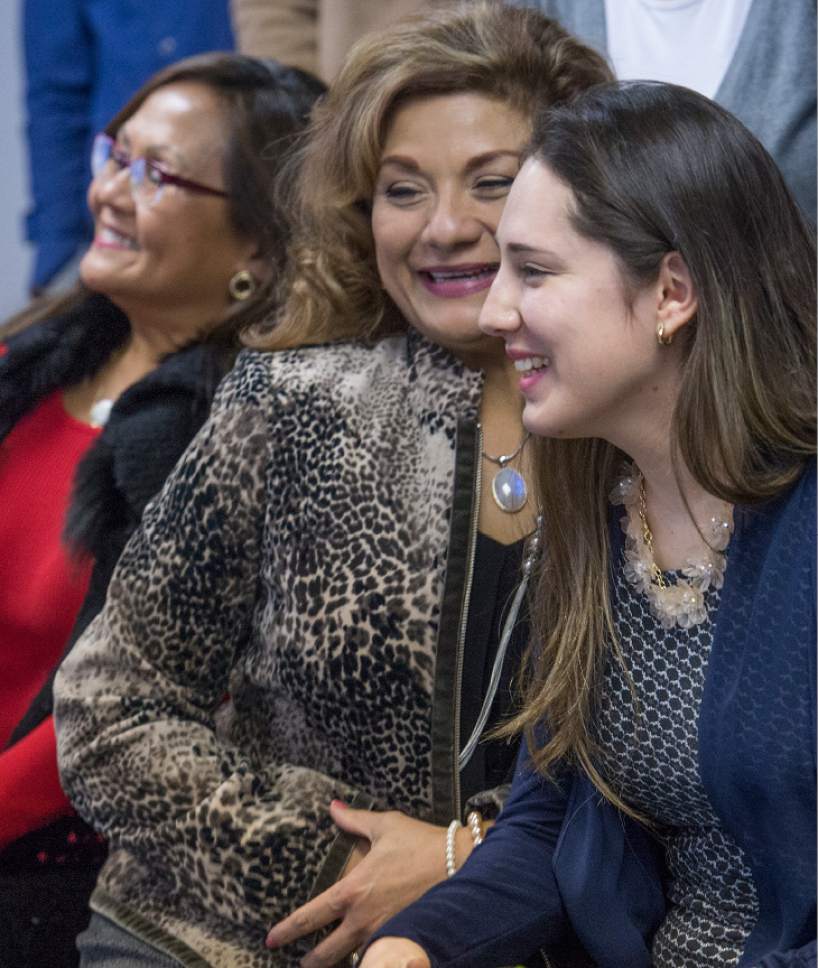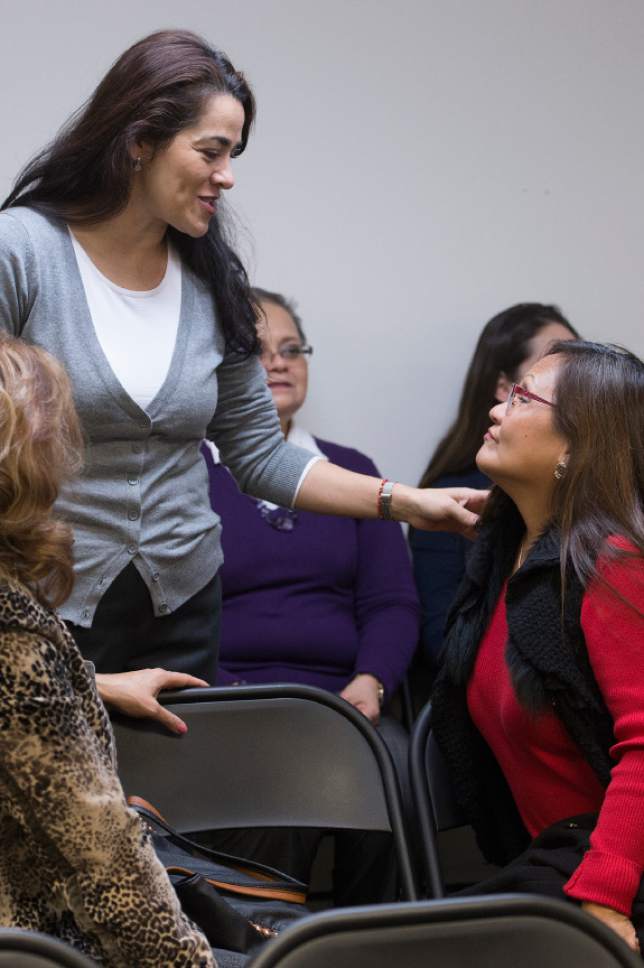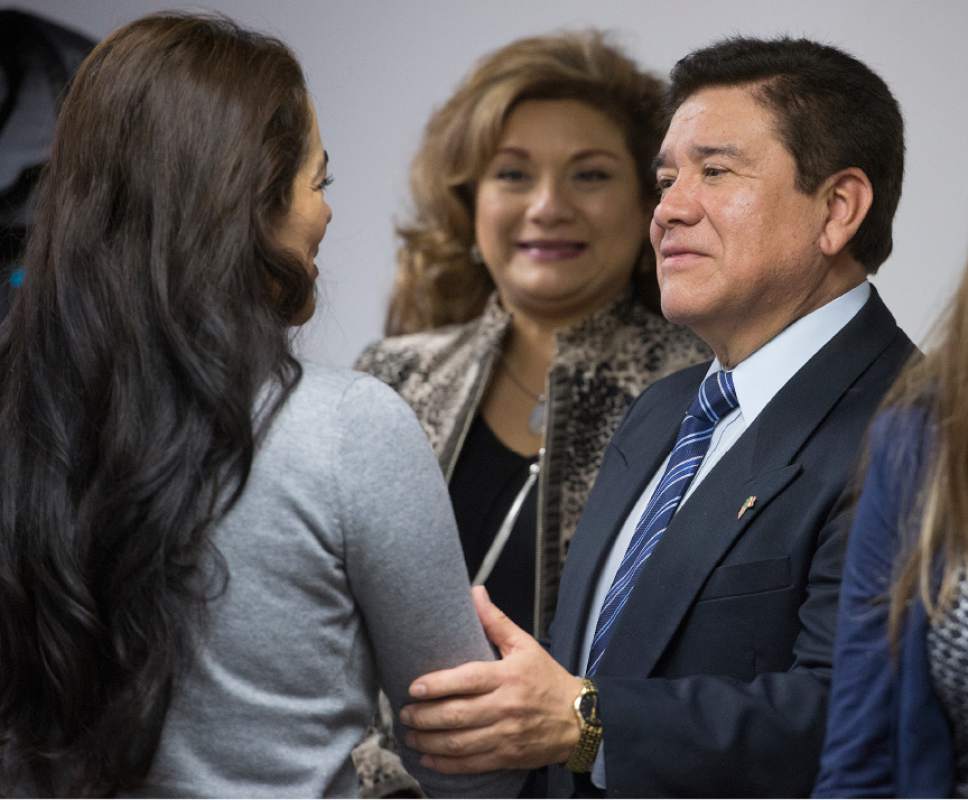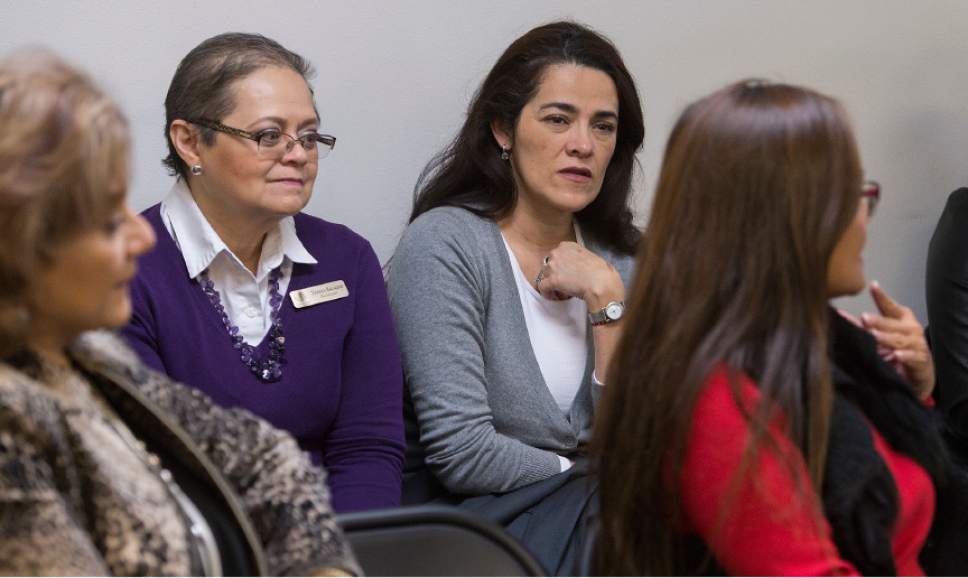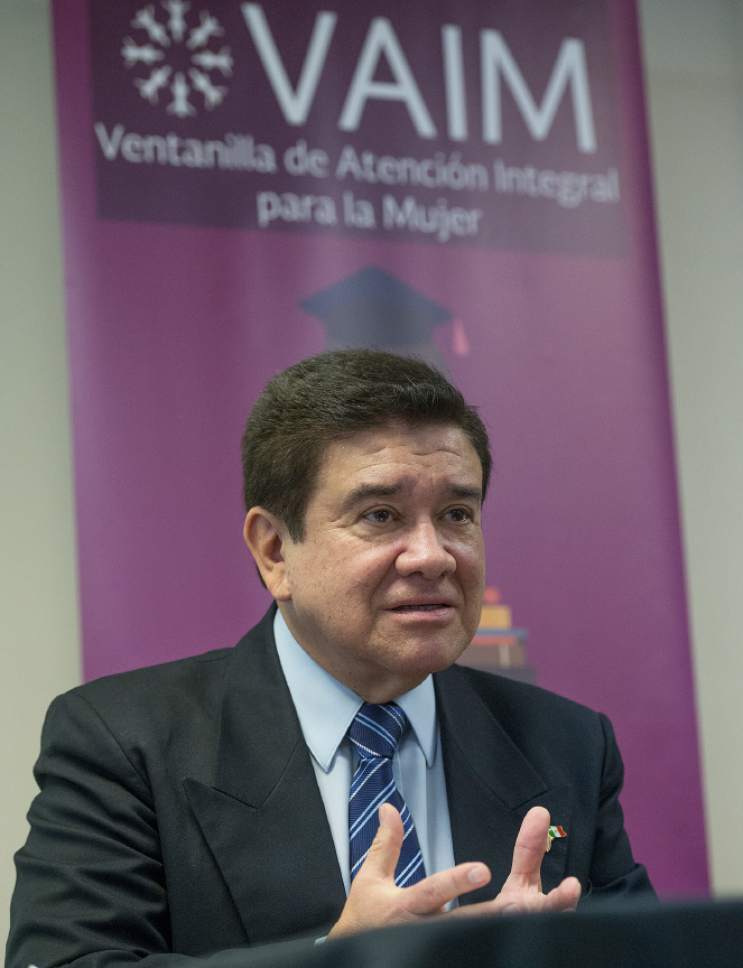This is an archived article that was published on sltrib.com in 2017, and information in the article may be outdated. It is provided only for personal research purposes and may not be reprinted.
Domestic violence is a cultural taboo for many Hispanic people, but a new women's issues program launched by the Mexican Consulate of Salt Lake City aims to give people the power to get past mental roadblocks that still persist.
Consul Javier Chagoya said at a news conference Wednesday that the new Initiative for the Comprehensive Care of Women, or, in Spanish, la Ventanilla de Atención Integral para la Mujer (VAIM), will help streamline efforts to empower women and provide a more uniform system at Mexican consulates throughout the U.S.
Programs focusing on domestic violence, health, legal assistance, education, immigration and community services offered through VAIM have been available through the consulate and its partner organizations for years, Chagoya said, but coordinating efforts will better enable the consulate to promote independence among female immigrants.
A VAIM assessment will help put women in touch with resources they need on a case-by-case basis, added consulate protection spokesman Gabriel Octavio Gil Mass. Programs offered through VAIM are available to anyone, regardless of their country of origin, Chagoya said, with the exception of documentation services, which are only available through the Mexican Consulate to Mexican nationals.
Chagoya sees the need for programs like VAIM because, while Mexican culture teaches people to respect matriarchs, women's rights have been disregarded time and time again throughout the country's history.
When Mexico was invaded by Spanish conquistadors, the male conquerers came without their families and "took whatever they wanted, including women. [The women] didn't have any rights. They were practically [treated as] objects." During subsequent centuries, women had no rights, though they participated in the Mexican Revolution, Chagoya said. Finally in the Constitution of 1917, women's rights were specified, though still restricted.
Women in Mexico couldn't exercise the right to vote until 1953, he said, and a few years later, more laws were enacted to ensure women's rights. Now, in the 21st Century, laws about rights for women are finally recognized "thanks to the feminist leagues in Mexico," Chagoya said.
But domestic violence is still too common and feeds the idea that women don't deserve to be treated as equals, he said, especially in rural areas or regions without much education.
Many victims of domestic violence are afraid to admit abuse from partners or family members, Chagoya said, because "they believe that's part of their culture."
In a video shown at the news conference, several women who had used VAIM for resources shared their experiences. All of them mentioned domestic abuse and one woman said she had even lied to her doctor about injuries she'd suffered at the hand of her partner.
"Sometimes the father arrives drunk and hits the mother," Chagoya said. "The children are watching that. They are seeing what's happening, but they see it so often that, to them, it's normal, and that is a big challenge for women."
It's difficult for women to report what is happening, even though they know it is wrong, he said, and it takes courage.
Women who are interested in learning more about the resources offered through VAIM can call the consulate for more details at 801-521-8502, ext. 103, 112, 114 or 115.
Twitter: @mnoblenews Mexican officials react to Trump administration
While sovereign nations have the right to guarantee their security, "Mexico does not believe in walls."
Mexican President Enrique Pena Nieto made that statement earlier this week in response to declarations from U.S. President Donald Trump that he would "build a wall" dividing the nations — a promise Trump followed up on Wednesday by signing an executive order directing construction of the wall.
"Our country believes in bridges, in rail and road crossings and in the use of technology as the best allies to promote good neighborly relations," Nieto said. "Our border should be the place where we best interact, a space of security, prosperity and shared development."
Mexico must strengthen its presence around the world and "redefine" its relationship with the new U.S. administration, he said.
Mexico will focus on national sovereignty, respect for laws in both nations and constructive and purposeful vision as it negotiates with the U.S., Nieto said. Through those principles, the United States' southern neighbor hopes to gain commitment from the U.S. government to guarantee humane treatment of Mexican migrants and an orderly and respectful process by which the U.S. returns undocumented migrants to Mexico.
Additionally, Nieto hopes all North American nations will preserve free trade and pay fair wages for foreign labor.
He said he believes when either the U.S. or Mexico does well, the other benefits.


